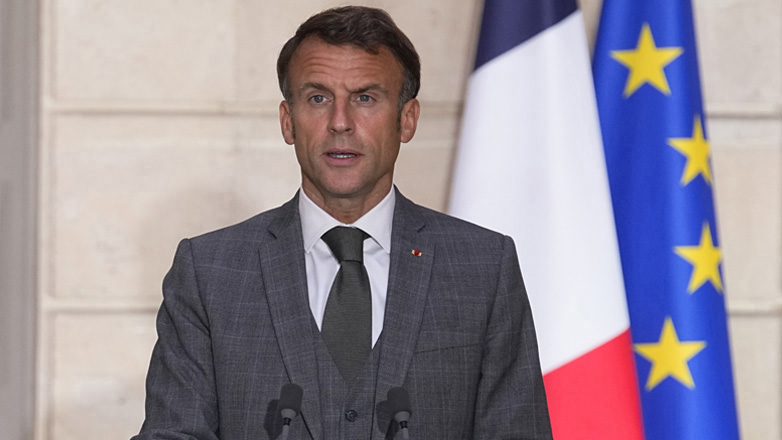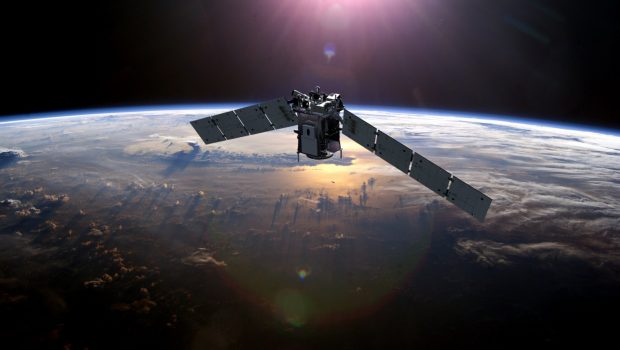
“We will see more extremes until we stop pumping more greenhouse gases into the atmosphere.”
The planet is burning, and citizens in every corner of the Earth are proving unprepared to face the onslaught of this intense heat wave.
In the United States, a third of Americans — more than 113 million people — are under a heat advisory program, according to the National Weather Service.
It’s an expected development when mercury remained stuck above 37°C for more than 27 consecutive days, breaking the last relevant record set in 1994.
Red temperatures
In the UK, the heat made history, rising 0.9°C from highs in 1940, while similar stories of soaring temperatures, government bafflement and growing fear were reported among citizens from North Africa, the Middle East and Asia.
In Europe, things are very difficult, he notes BBCIts citizens have just survived their hottest June on record and are facing their hottest July, which will kick off a similar August filled with extreme events related to climate change and careless human activity.
“We shouldn’t be surprised at all by rising global temperatures,” climatologist Richard Bates told the British Network.
The comet’s relationship to climate change
“All of this evil is a stark reminder of what we’ve known for so long, we’ll see more extremes until we stop continually putting more greenhouse gases into the atmosphere,” he adds.
The four ways in which climate change is associated with extreme weather events are as follows:
Hotter and longer heat waves
Even a small increase in average temperatures makes a big difference. This is because the entire distribution of daily temperatures shifts to warmer levels, making warmer days more likely and more intense.
Scientists are using computer simulations to determine whether extreme weather events have become more likely due to human-caused warming.
For example, a record-breaking heatwave in Spain, Portugal and northwest Africa in April is now 100 times more likely to be caused by climate change, according to the World Weather Network (WWA).
Global Warming
While it is too early for scientists to say for sure whether persistent July heat waves in many parts of Europe, the southwestern United States, and China are due to climate change, they have no doubt that these extreme events are linked to global warming. .
Especially when combined with natural weather patterns such as high pressure systems and El Niño events.
In the UK, for example, temperatures exceeded 40°C for the first time last July, a development that would have been nearly impossible without climate change, according to the WWA.
Heat domes and atmospheric torrents
Heat waves also last longer and are more intense due to “heat domes”, which are atmospheric phenomena consisting of masses of dry, warm air that appear and settle over an area for a long time. Dry warm air masses are frozen over this area creating a sort of dome that keeps the heat on its surface.
This is not a new phenomenon, but in recent years its high incidence is considered a consequence of climate change. Scientists linked the appearance of the thermal dome to ocean temperatures and the sea temperature phenomenon.
A related theory is that high temperatures in the Arctic — which has warmed four times faster than the global average — is causing strong winds, called jet streams, to slow down and increase the likelihood of heat domes.
Endless droughts
It is difficult to link climate change to an individual drought. This is because water availability does not depend solely on temperature and rainfall.
However, longer and more intense heat waves can exacerbate droughts by drying out the soil in virtually every corner of the Earth. The air above it then heats up faster, resulting in an even more intense heat. People’s demand for water and agriculture in hot weather puts more pressure on the water supply.
In many parts of East Africa, ongoing drought has left more than 20 million people at risk of not having access to even basic food. The fact is, climate change has made that drought more than 100 times more likely to occur, again according to the WWA.
A world on fire
Fires occur naturally or with human intervention in many parts of the world. It is difficult for scientists to conclude whether climate change has caused an increase in wildfires because other factors, such as changes in land use, are also involved.
Some regions — such as the western United States — have seen an increase in the area burned by wildfires, but global trends are more complex. However, scientists estimate that climate change is making the atmospheric conditions necessary for wildfires to occur more likely.
The intense and prolonged heat draws more and more moisture from the soil and vegetation. These dry conditions provide ‘fuel’ for fires, which can spread incredibly quickly, especially if the wind is strong, as has been the case in Greece in recent days.
Heavy rainfall
The warmer the world, the more moisture the atmosphere can hold. This results in more drizzling and heavy rain, sometimes for a shorter period of time and over a smaller area.
In 2022, Pakistan experienced the wettest July and August on record, causing devastating floods affecting more than 33 million people. Climate change very likely played a role in this evolution, according to the WWA, but other natural weather patterns, such as monsoons, could also have been involved.
Heavy rains and floods also ravaged other regions, including West Africa between May and October 2022, and New Zealand in February 2023. Although scientists cannot say with certainty that they are caused by climate change, they note that the floods are quite consistent with the changes they expect. In an ever-warming world.

“Hipster-friendly coffee fanatic. Subtly charming bacon advocate. Friend of animals everywhere.”





More Stories
“Russia should not win in Ukraine”
The man moved to a five-star, all-inclusive hotel because it was cheaper than his rent
USA: The cursed steamship Adela Shores that disappeared 115 years ago has been found – Newsbomb – News